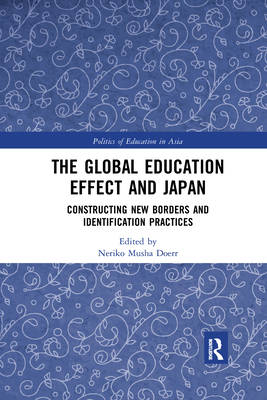
- Retrait gratuit dans votre magasin Club
- 7.000.000 titres dans notre catalogue
- Payer en toute sécurité
- Toujours un magasin près de chez vous
- Retrait gratuit dans votre magasin Club
- 7.000.000 titres dans notre catalogue
- Payer en toute sécurité
- Toujours un magasin près de chez vous
The Global Education Effect and Japan
Constructing New Borders and Identification Practices
Description
This volume investigates the "global education effect"--the impact of global education initiatives on institutional and individual practices and perceptions--with a special focus on the dynamics of border construction, recognition, subversion, and erasure regarding "Japan". The Japanese government's push for global education has taken shape mainly in the form of English-medium instruction programs and bringing in international students who sometimes serve as a foreign workforce to fill the declining labour force. Chapters in this volume draw from education, anthropology, sociology, linguistics, and psychology to examine the ways in which demographic changes, economic concerns, race politics, and nationhood intersect with the efforts to "globalize" education and create specific "global education effects" in the Japanese archipelago.
This book will provide a valuable resource for anyone who is interested in Japanese studies and global education.
Spécifications
Parties prenantes
- Editeur:
Contenu
- Nombre de pages :
- 280
- Langue:
- Anglais
- Collection :
Caractéristiques
- EAN:
- 9781032173597
- Date de parution :
- 30-09-21
- Format:
- Livre broché
- Format numérique:
- Trade paperback (VS)
- Dimensions :
- 156 mm x 234 mm
- Poids :
- 399 g






